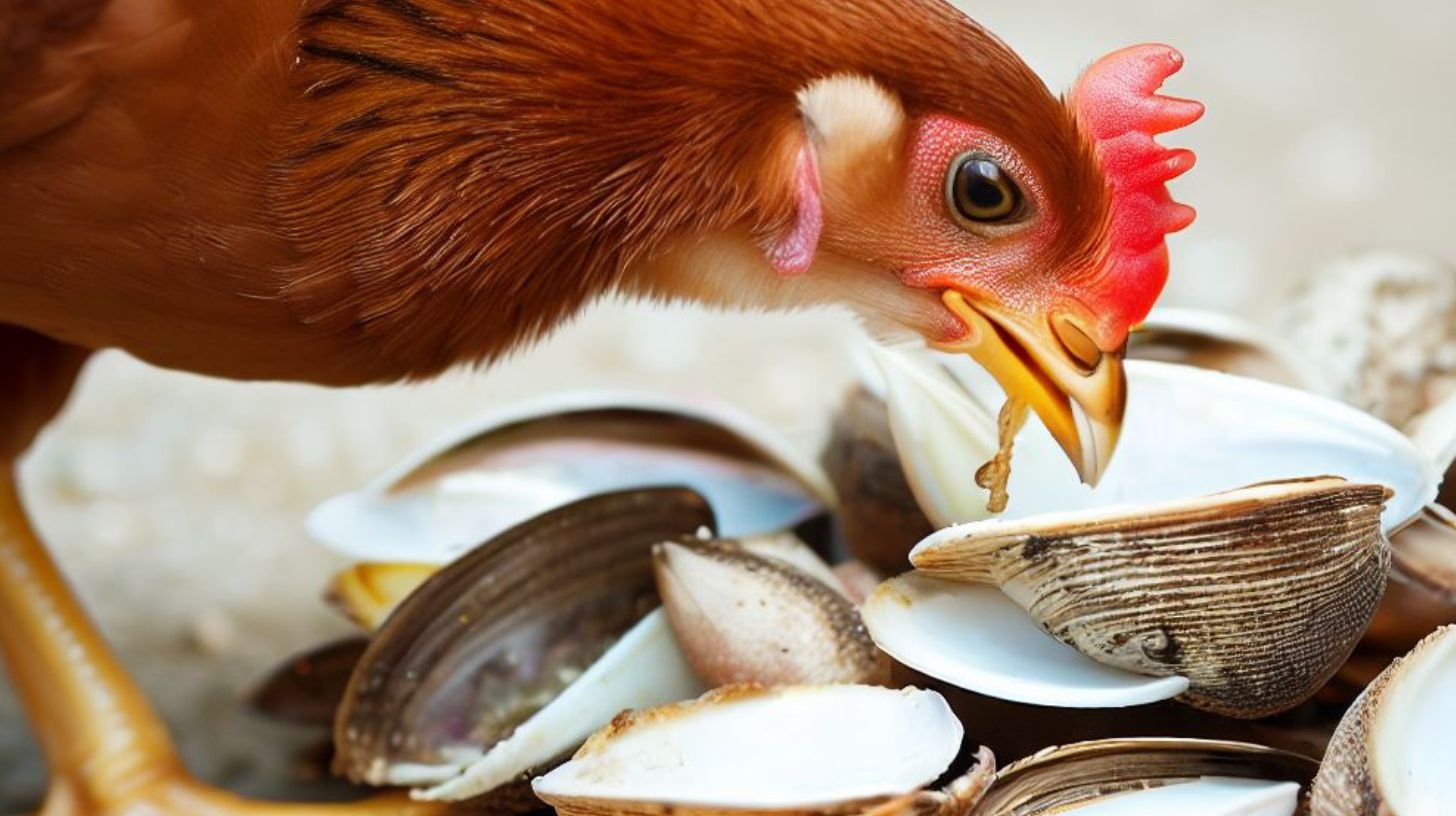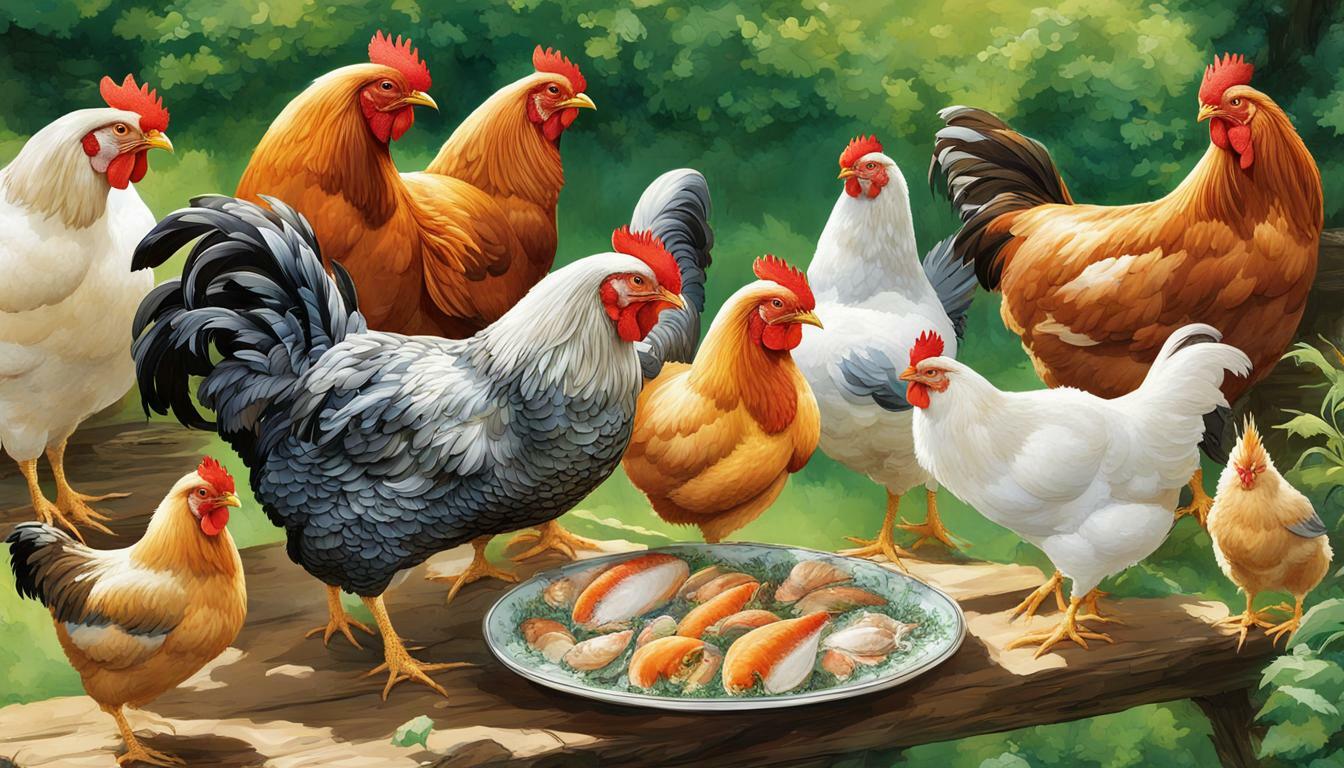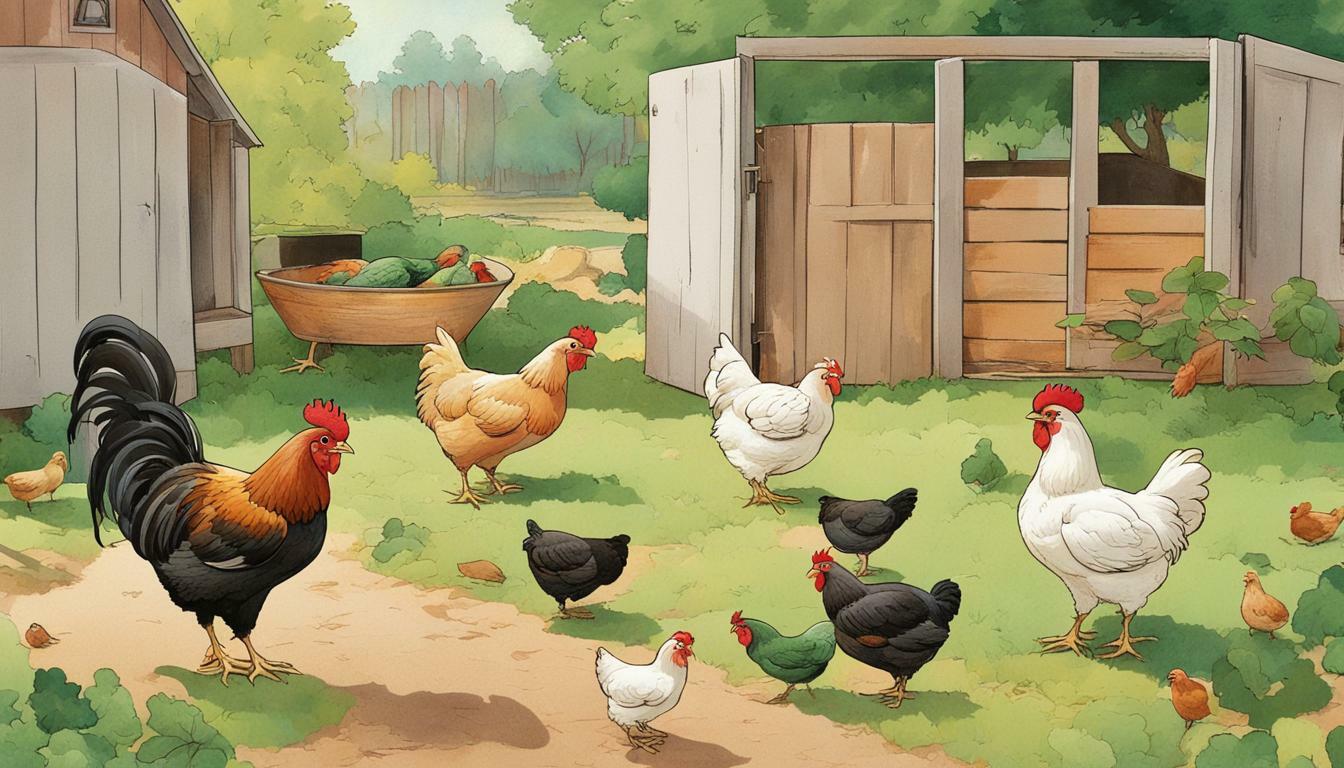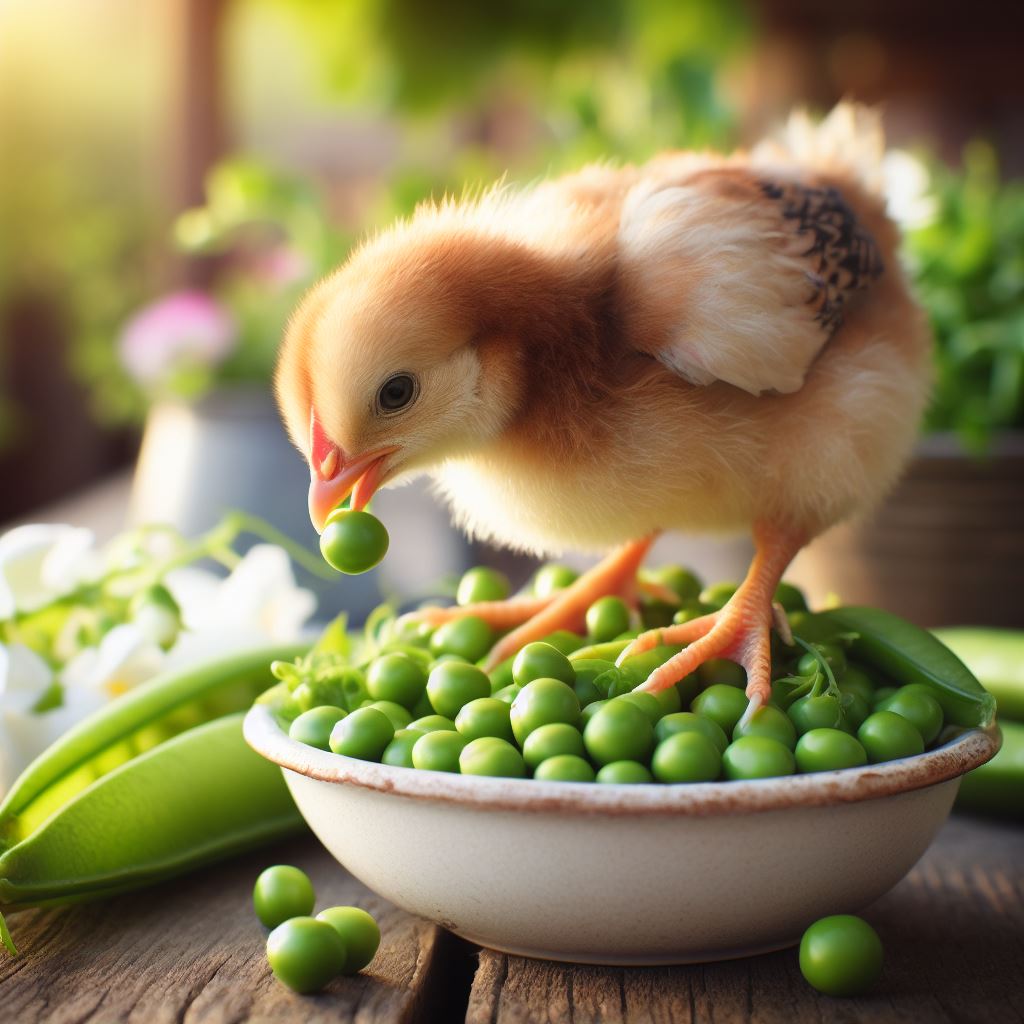Can Chickens Eat Clams? A Nutritional Guide for Poultry Owners

Table of content:
- Can I Feed My Chickens Clams?
- Are Clams Good for Chickens? Benefits of Feeding Clams
- Are Clams Safe for Chickens to Eat? Potential Risks
- What Parts of Clams Can Chickens Eat?
- How Much Clams Can You Feed Chickens?
- How Should You Prepare Clams for Chickens?
- What Do Chickens Like to Eat Besides Chicken Feed?
- Can Chickens Eat Other Types of Shellfish?
- Do Chickens Like Fish and Seafood?
- What Human Foods Can Chickens Eat?
- Are Mussels Safe for Chickens to Eat?
- Final Thoughts
Chickens are curious birds that will eat almost anything. Many chicken owners wonder if they can feed unusual foods like clams to their flock. Clams may seem like an odd choice, but they can actually provide beneficial nutrients. This article will explore whether chickens can eat clams and how to safely feed them.
Can I Feed My Chickens Clams?
This is one of the most common questions about feeding clams to chickens. The short answer is yes, chickens can eat clams in moderation. Clams are a good source of protein, vitamins and minerals that chickens need. Let’s look at the benefits and risks of feeding clams to chickens.
Are Clams Good for Chickens? Benefits of Feeding Clams
Clams are rich in several nutrients that are great for chicken health:
- Protein – Clams provide high-quality, complete proteins that chickens need daily.
- Calcium – The shells are a good source of calcium for strong eggshells and bones.
- Iron, zinc and omega-3 fatty acids – Clams provide iron for healthy blood, zinc for immunity, and omega-3s for skin and feathers.
- Vitamins and minerals – Clams have vitamins A, B12, C, D, E, K and minerals like selenium important for chick health.
Chickens are omnivores and can benefit from the variety of nutrients found in clams. The shells are also good to aid digestion.
Are Clams Safe for Chickens to Eat? Potential Risks
Although nutritious, there are some risks to feeding clams that need caution:
- Food safety – Only feed chickens clams fully cooked to 165°F to kill bacteria like salmonella and E. coli. Do not feed raw clams.
- Parasites – Clams may harbor parasites, so cook thoroughly. Freezing overnight also helps kill parasites.
- Choking hazard – Chop clams finely into bite-size pieces to prevent choking or crop impaction.
- High salt content – Rinse clams before feeding to remove excess salt which can cause dehydration or toxicity.
- Fishy taste – Can affect the taste of eggs.
With proper preparation and moderation, the risks are low. Cook clams fully, rinse, chop finely and limit feeding to 1-2 times a week.
What Parts of Clams Can Chickens Eat?
Chickens can eat all parts of clams including:
- Meat – An excellent source of protein, omega-3s, vitamins and minerals. Cook fully and chop finely before feeding.
- Shells – A good calcium source. Crush the shells into small pieces so chickens don’t choke.
- Juices – Contains beneficial vitamins, minerals and fluids. Reduce salt content by rinsing clams before cooking.
Do not feed the tough leathery part around the shell as this can cause choking. Overall, the entire clam can be fed safely by cooking thoroughly, chopping the meat and shell into bite-size pieces and rinsing to remove excess salt.
How Much Clams Can You Feed Chickens?
Feed clams in moderation, about 1-2 times per week at most. Follow these serving guidelines:
- Adult chickens – 1-2 ounces of chopped clam meat per chicken once or twice weekly.
- Chicks – 1/2 ounce of chopped clam once or twice weekly.
- Calcium from shells – Offer crushed shells free-choice as a supplement.
Avoid feeding clams daily, as too much can cause digestive upset. Monitor your flock’s health and reduce frequency if any issues like loose droppings arise. Clams are safe for chickens when fed properly in moderation.
How Should You Prepare Clams for Chickens?
Proper preparation of clams helps reduce risk of illness:
- Cook thoroughly – Heat clams to an internal temperature of 165°F to kill pathogens like salmonella. Steaming, boiling or baking works well.
- Chop finely – Cut cooked clam meat and shells into small pea-sized pieces to prevent choking.
- Rinse – Rinse cooked clams in fresh water to remove excess salt.
- Avoid raw – Never feed chickens raw clams as they may harbor bacteria. Cook fully before feeding.
- Remove flesh – Pry clam meat from the shell after cooking for easier eating. Leave crushed shell as a calcium supplement.
Follow safe handling. Store unused clams in the refrigerator for 1-2 days and heat fully before each use. Proper prep makes clams a safe, nutritious treat.
What Do Chickens Like to Eat Besides Chicken Feed?
Chickens enjoy variety in their diet. Some treats they love besides their regular feed include:
- Vegetables – Squash, lettuce, spinach, kale, tomatoes, carrots.
- Fruits – Watermelon, berries, apples, oranges.
- Meat and eggs – Cooked meat, mealworms, eggs, yogurt.
- Grains – Whole grains like oats, rice, barley or sprouted seeds.
- Table scraps – Veggie peels, tops, pasta, baked goods in moderation.
Rotate treats to keep chickens engaged. Favorites like clams, shrimp and fish add beneficial protein. Offer free choice oyster shell or eggshells for calcium. A varied diet promotes good chicken health.
Can Chickens Eat Other Types of Shellfish?
Yes, chickens can eat other types of shellfish in moderation:
- Mussels – Cooked, chopped mussels provide protein, zinc, iron and vitamin B12.
- Shrimp– Cooked, peeled shrimp are a tasty source of protein and antioxidants.
- Oysters – Provide protein, zinc and iron. Their shells are also excellent natural calcium.
- Crayfish – Cooked crayfish offer protein, vitamins and minerals. Remove armor first.
Shellfish should always be cooked fully to kill bacteria and parasites. Chop meat finely or mash to prevent choking. Limit to one or two times weekly as too much can cause loose droppings.
Do Chickens Like Fish and Seafood?
Chickens do enjoy eating fish and seafood. Here’s why:
- Provides a protein boost – Fish and shellfish offer quality complete proteins chickens need. More nutritious than plain grains.
- Supports egg production – The omega-3 fatty acids promote healthy hormones for laying.
- Offers beneficial vitamins and minerals – Variety of nutrients support immunity and development.
- Natural behaviors – Chickens love foraging for juicy worms and insects. Fish and shellfish satisfy this natural urge.
Caution: Only feed fully cooked seafood to eliminate bacteria. Too much fishy food can affect egg flavor. Limit treats to 1-2 times weekly.
Overall, a small amount of cooked fish or seafood like clams makes a nutritious, natural supplemental feed chickens relish.
What Human Foods Can Chickens Eat?
Chickens can safely eat a variety of human foods in moderation:
- Fruits and veggies – All types, either fresh or leftovers. Favorites are leafy greens, squash, berries and melons.
- Cooked meat, eggs, dairy – In small quantities as a protein boost.
- Cooked grains and pasta – Whole grains are healthier.
- Baked goods – Healthy treats like whole grain bread.
Avoid spicy, greasy or salty foods. Onions and uncooked dried beans contain toxins. Limit high sugar foods. Variety is key, so rotate different people foods as supplemental treats no more than 10% of total diet.
Are Mussels Safe for Chickens to Eat?
Mussels are one type of shellfish chickens can eat safely. Here are some tips:
- Cook mussels thoroughly until the shells open, at least 165°F internal temperature. This kills any bacteria and parasites present.
- Remove mussel meat from the shell and chop finely into small pieces to prevent choking.
- Rinse mussels after cooking to reduce excess salt. De-beard mussels also.
- Feed mussels in moderation – 1-2 times weekly for variety.
- Avoid raw mussels which may contain pathogens. Cook every time before feeding.
Mussels offer protein, vitamin B12, iron, omega-3s and zinc beneficial for chickens. Proper cooking and preparation reduces risk of illness. Feed as an occasional treat for a balanced diet.
Final Thoughts
Clams can be a healthy supplemental food for chickens in moderation. They provide lots of beneficial protein, calcium, minerals and nutrients chickens need to thrive. Be sure to cook clams fully to prevent illness, rinse to reduce salt, and chop the meat and shells finely for safety. Limit treats like clams to one or two times per week. Following proper preparation and feeding guidelines, clams and other shellfish can give chickens a nutritious, marine boost. A varied diet with treats like clams keeps backyard chickens happy and healthy.
Welcome. I’m Adreena Shanum, the proud owner of this website, and I am incredibly passionate about animals, especially poultry. I founded adreenapets.com as a labor of love, stemming from my desire to share my knowledge and experiences with poultry enthusiasts worldwide.




